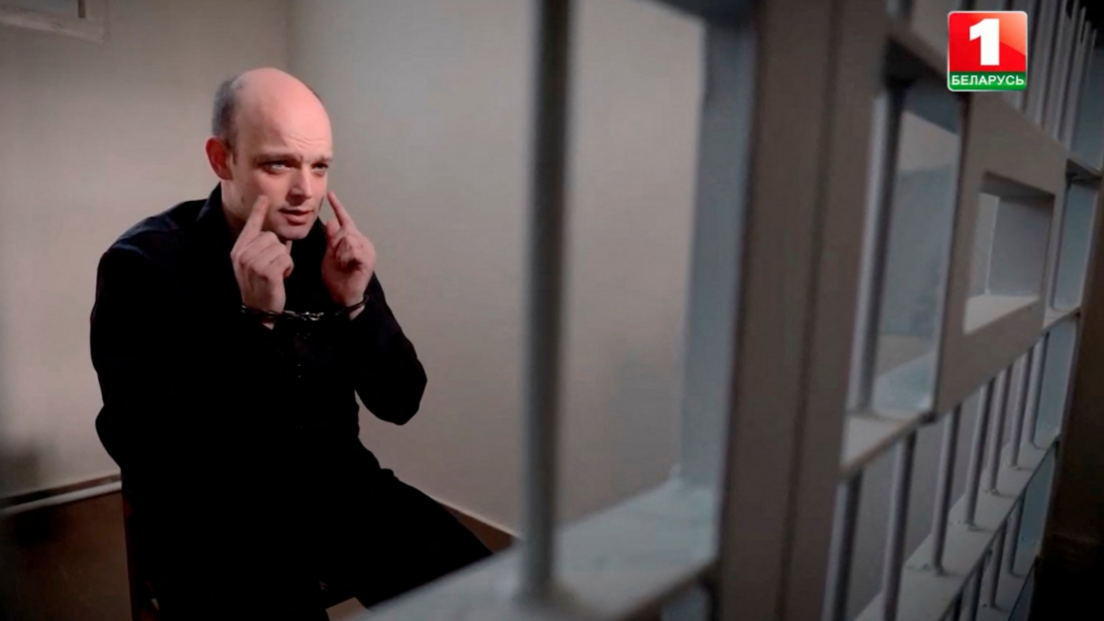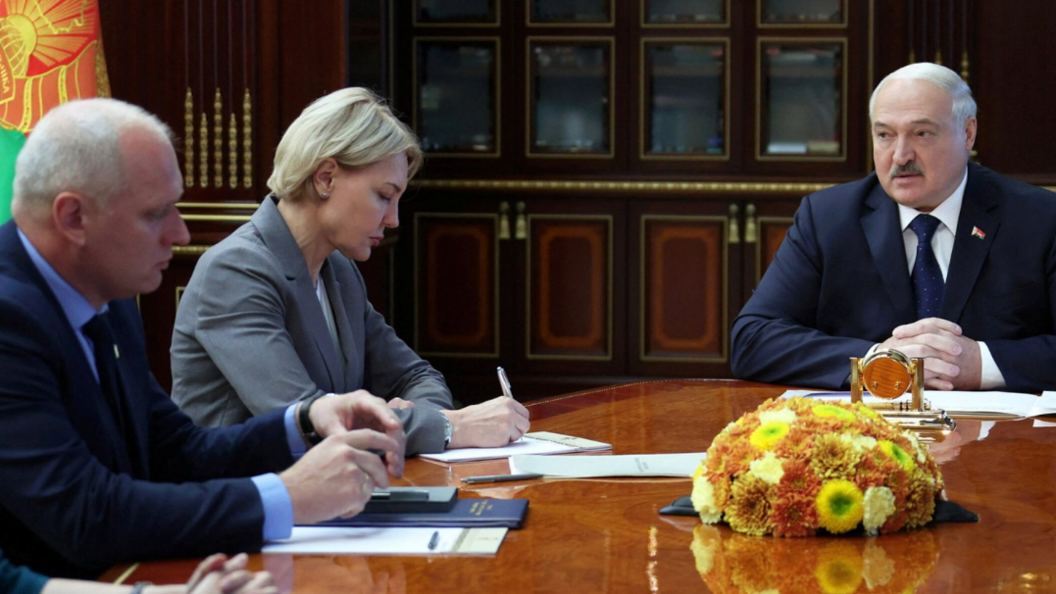Belarus pardon for German hints at wider prisoner swap

Rico Krieger appeared in a heavily choreographed interview on Belarusian state television on Friday
- Published
The authoritarian leader of Belarus has pardoned a German citizen who had been sentenced to death.
Rico Krieger was arrested in October and had been accused of acting as a mercenary and of planting explosives. But news of his death sentence only became widely known last week.
Today’s intervention by Alexander Lukashenko means his death sentence is officially commuted to a life sentence and he will not be executed.
The unusual nature of the case, the sudden focus – and the equally sudden pardon – have all prompted speculation Belarus might be looking to release Mr Krieger in a high-profile swap involving prisoners in both Germany and Russia, a close ally of Belarus.
It comes days after Mr Krieger was shown in a film on Belarusian state television in tears and begging for help.
The 16-minute film released on Friday included re-enactments involving guards in balaclavas and truncheons and looked like a crude attempt to pressure the German authorities into action.
Foreign Ministries in Berlin and Minsk confirmed they were in talks. A spokesman in Belarus said various "proposals" had been made.
Mr Krieger is the first Westerner ever sentenced to death in Belarus.
In his televised confession, clearly made under duress, Mr Krieger admitted to planting explosives beside a train line, supposedly on the orders of Ukrainian intelligence, the SBU.
He said he had wanted to fight in Ukraine with an international legion but was instructed to carry out a mission in Belarus, first.

Alexander Lukashenko chaired a meeting with people involved in the case of Rico Krieger on Tuesday in Minsk
But the film produced no direct evidence of that and there were multiple oddities and inconsistencies in the account.
It ended with Mr Krieger making a sobbing plea for help from the German government.
Now he’s been pardoned, state media are full of praise for Mr Lukashenko’s "merciful" nature and damning the Germans, claiming they abandoned their own.
One notorious reporter was filmed giving the official line: the crime was very serious and unjustifiable, but Mr Lukashenko was wise and fair – and would make "the right call".
It is possible this presidential pardon is the latest in a series of tentative gestures by Mr Lukashenko towards the West.
Widely condemned and sanctioned after his security forces brutally suppressed mass opposition protests in 2020, he was isolated still further when he allowed Russia to use Belarusian territory for its full-scale invasion of Ukraine.
Lukashenko owed Vladimir Putin for coming to his support during the street protests.
Now some see hints he is trying to build bridges again with Europe: he released a handful of political prisoners earlier this month.
Reports of a recent meeting with Vladimir Putin in Russia suggest it was unusually tense.
But there are other theories, including speculation Mr Krieger could be a key part in a complex, multi-country prisoner exchange.
That might also involve Vadim Krasikov a Russian FSB assassin in prison in Germany who the Russian president, Vladimir Putin, wants back.
Mr Krasikov’s fate has previously been linked to that of the American reporter Evan Gershkovich, who was arrested in Russia and recently convicted of espionage.
His employer, the Wall Street Journal, friends and families all insist that is absurd and he is a political hostage.
The only sure fact for now is Mr Krieger – who had been facing death by firing squad – has been spared.
What Mr Lukashenko wants in return for that is not clear.